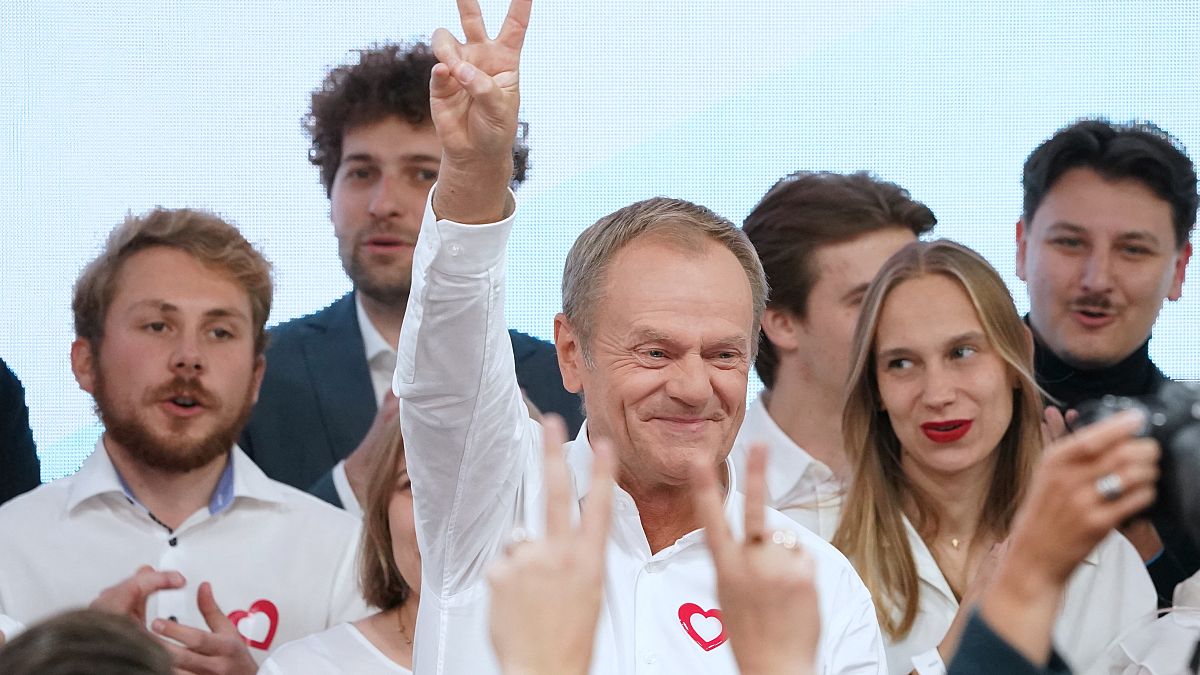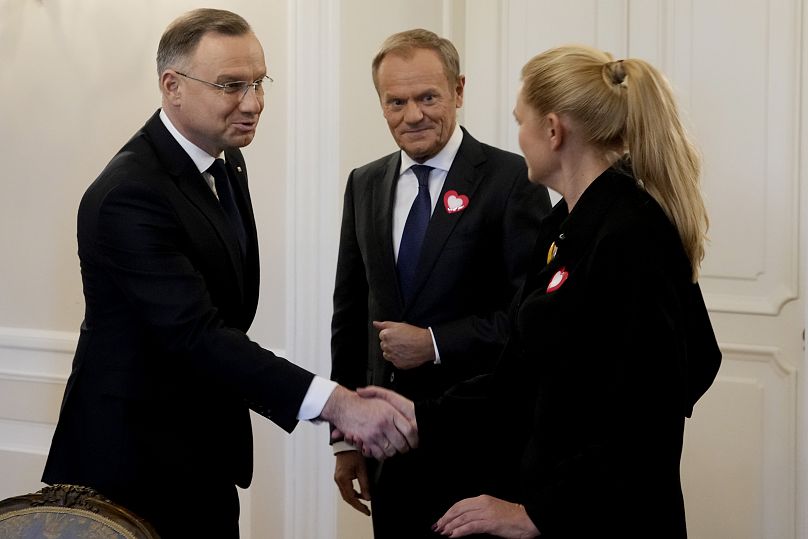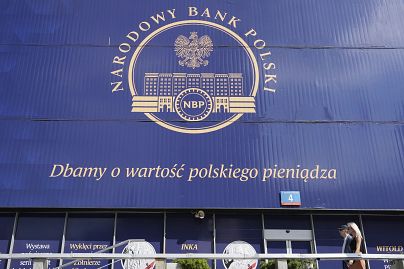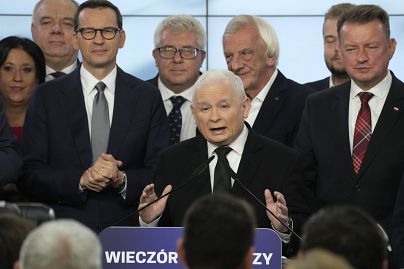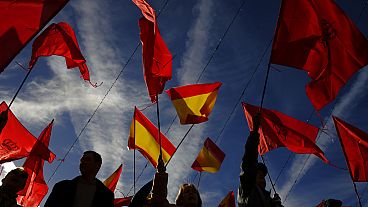As President Andrzej Duda opens consultations with party leaders to form a new government, here's how the opposition's majority in the Polish parliament will affect the EU's sixth-largest economy - as well as the bloc itself.
The Poles have said it loud and clear. After eight years of rule by the right-wing nationalist Law and Justice party, they have had enough.
With a record turnout of 74.4%, the elections in mid-October gave the three pro-EU parties - Civic Coalition (30.7%), Third Way (14.4%) and New Left (8.6%) - a parliamentary majority of 53.7% in total. Law and Justice got 35.4% of the votes.
The new government hasn’t been formed yet, but President Andrzej Duda is meeting with party leaders on Tuesday and Wednesday to start coalition talks.
As the Law and Justice party is unlikely to find a coalition partner, one man is in the pole position to become prime minister: Donald Tusk, who leads the Civic Coalition. He's already asked Duda to let him form a government.
This political game change will have significant implications for the EU's sixth biggest economy, as well as for the bloc itself. Here are some of the major economic impacts.
Unfreezing €112 billion in EU funds
Since 2015, Poland has been at loggerheads with the EU, after the ruling government brought in new laws that the bloc believed were undermining the independence of Polish courts and going against democratic standards.
The wrangling resulted in the EU blocking the country from accessing €35.4 billion in COVID-19 recovery funds in 2020 and €76.5 billion in EU cohesion funds in 2022.
With the Law and Justice party out of the way, some have speculated that Brussels might finally decide to reverse the decision and grant a significant boon for the Polish economy.
But the money won’t simply start flowing because there will be a different government.
First, Warsaw has to reverse the controversial judiciary rules, which will require the passage of new legislation. While it’s ultimately up to parliament to approve any such law, the speed of the process will depend on President Duda.
Duda, who is a long-time ally of Law and Justice, holds veto power over laws and is himself the author of some of these recent controversial changes.
Nevertheless, Rafał Trzaskowski, Warsaw’s mayor and a member of Donald Tusk’s party, has assured that unfreezing the bloc’s funds would be the most urgent task for the majority government.
“As soon as the president nominates the new government, the prime minister will travel [to Brussels] and will negotiate with the EU the unblocking of that money,” Trzaskowski said.
Poland joins hands with the EU… and perhaps the euro
The creation of a pro-EU government will pave the way for Poland to improve its ties with the bloc, facilitating collaboration and decision-making.
Paweł Tokarski, a Polish economist and senior researcher at the German Institute for International and Security Affairs, believes the new executive will be “a huge change for the EU because Poland will stop being a blocking member”.
“The shift in power also means that the risk of Poland leaving [the EU] is out, at least for a moment”, he added.
Indeed, Poland’s relationship with the EU is likely to come on in leaps and bounds if Donald Tusk truly is the country’s prime minister-in-waiting, not least thanks to his extensive experience in the Brussels bubble.
Tusk served as president of the European Council from 2014 to 2019 (taking a leading role in Brexit negotiations with outgoing member state, the UK) and of the European People’s Party from 2019 to last year.
“Tusk will be welcomed with open arms”, Tokarski said.
Improving the current state of Poland’s central bank is another avenue through which the country might wish to reconcile and forge stronger bonds with the EU.
Tokarski strongly criticised the bank’s president, Adam Glapiński, for not “fulfilling his role and fighting against inflation”.
Inflation is set to reach 11.4% in Poland this year, against the 5.6% projection for the euro area.
Poland still uses its own currency, the złoty, despite having previously pledged to adopt the euro. While the country’s outgoing administration has argued against integrating into the EU-wide currency any time soon, Tokarski pointed to the euro as “a way to repair the damaged reputation of the Polish central bank”.
Warsaw’s path to the common currency “would need to involve not only depoliticisation of the judicial system but also a stronger fiscal governance framework, especially concerning transparency and the legislative process, as well as the reigning in of populist financial policies”, he said in an article he co-authored.
Tokarski added that the new administration will re-evaluate the adoption of the euro, which will be “very positive” for the country.
Polish economy celebrates upcoming political shift
The election’s results generated a lot of economic optimism in Poland, which was reflected in the behaviour of stock and currency markets.
The country's blue-chip index WIG20 hit a two-month high last week when the official vote count was released. The index has climbed almost 6% this month so far.
On the same day, the złoty jumped to 4.42 against the euro, its strongest rate since the beginning of August.
Tokarski said that private consumption is also expected to rise because the Poles now see a brighter future ahead of them.
Moreover, “the new government will pay more attention to small and medium-sized enterprises, which are responsible for more than 50% of GDP”, he added.
Concerning public finances, the opposition group will have to check its actual situation once in power. Tokarski explained that, since “the budgetary processes were to a large extent out of the control of the Parliament,” only the ruling government had access to all the exact data.
However, he doesn’t expect any drama here. In Poland, the debt-to-GDP ratio is lower than 60%, which is “relatively low in the context of the EU” (83.1% halfway through this year).
“Even if there are some problems, I don't think it would cause a major crisis of confidence”, Tokarski said.
